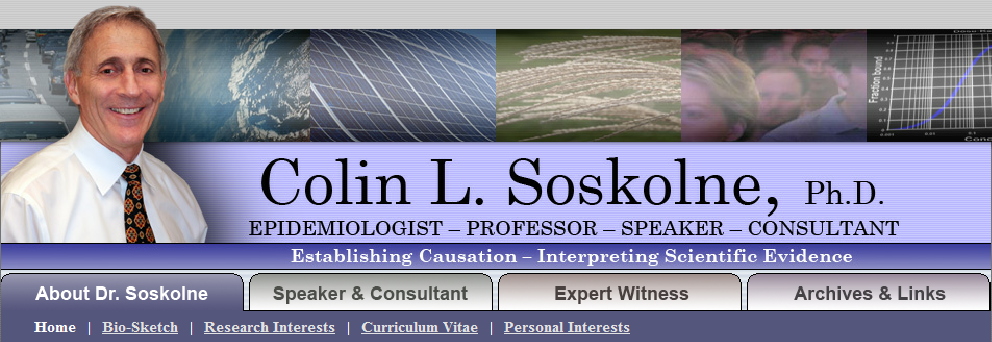Dear Aubrey:
Please add my name to your list of supporters for adding C&C as per your proposal sought below.
Sincerely,
Colin
Professor Colin L. Soskolne, PhD (Epidemiology)
Department of Public Health Sciences
School of Public Health
3-266 Edmonton Clinic Health Academy
University of Alberta
VALUES, ETHICS, AND SUSTAINABILITY
April 30 – May 18, 2012;Changing our current paradigm ― the way we conduct ourselves, our expectations and the way we are governed ― from one that is not sustainable to one that is sustainable will require radical adjustments and adaptations. With an adequate safety net, there is no need to see the change as resulting in winners and losers. Under the principle from ecological economics of “contraction and convergence,” we can all be winners. Change will be required at both the individual level and collectively, not only as global citizens, but also in our personal and professional lives.
Together, we can work towards a sustainable future, one of hope, peace, justice and happiness throughout the world. The Earth Charter is a road map – a soft-law instrument – to achieve this end. This course is for people who have an intuitive sense that all is not well with the world and are up for the challenge of imagining new paths to sustainability.
This interdisciplinary course exposes a world destined to collapse under the weight of humankind’s current practices. It draws attention to the urgency for a change in how we live, work and play. What do we value and how ethical is our conduct under current trends? The course strives to provide a comprehensive understanding of what sustainability is at the local and global levels, and how crucial sustainability is to both present and future generations around the world. What are some of the economic, environmental, ecological, philosophical and legal issues associated with moving towards sustainability? How do we vision our future? Is it our hypocrisy as individuals that contributes to the status quo? Or, are we hypocrites because “the system” makes us such? What influences do values and ethics have on our individual and collective behaviours, our institutions, and on social policy? Who derives benefits and who takes risks as we maintain the status quo? What hopeful signs are there for our collective movement towards a more sustainable future?
~~~~~~~~~~~~~~~~~~~~~~~~~~
This course is a “light” version of an interdisciplinary, graduate-level course that Dr. Soskolne coordinated for the School of Energy and the Environment in the School of Business in the Fall term of 2008 and the Winter term of 2010. It is an update of the course taught as EL 55 in 2009. The last week will be taught by David Thompson with a focus on multiple dimensions of urban sprawl, a focus from his 2010 ELLA course. It ties into the first two weeks as we consider how we plan our cities as one needed change in the ways in which we live our lives.
Professor Colin L. Soskolne, PhD (Epidemiology)
Department of Public Health Sciences
School of Public Health
3-266 Edmonton Clinic Health Academy
University of Alberta


